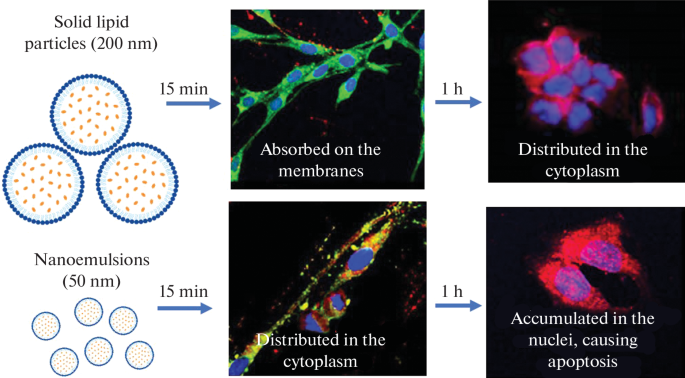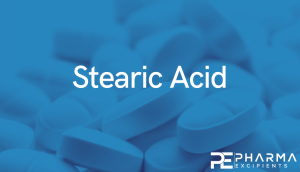Nanoemulsions and Solid Lipid Nanoparticles with Encapsulated Doxorubicin and Thymoquinone

Nanoemulsions (NEs) and solid lipid nanoparticles (SLNs) are promising drug delivery systems. In this work, paraffin oil NEs and stearic acid SLNs stabilized with Tween 60 and Span 60 have been studied. NEs with an average droplet diameter of ~50 nm and suspensions of SLNs with an average size of ~30 nm are stable to aggregation for more than 90 days. The rates of penetration of lipid particles into cancer cells (C6 and MCF-7) depend on their sizes. After incubation for 1 h, lipid nanoparticles ~50 nm in size penetrate into cells, are distributed in their internal space, and concentrate in the nuclei. The cytotoxicity of doxorubicin- or thymoquinone-loaded NEs and SLNs against MCF-7 and HTC 116 cell lines is higher than the cytotoxicity of the individual substances. Wherein, unloaded NEs and SLNs show low cytotoxicity. The obtained results demonstrate that paraffin oil NEs and stearic acid SLNs are promising to be used as carriers of both lipophilic and amphiphilic drugs, including doxorubicin and thymoquinone. The accumulation of lipid nanoparticles with sizes smaller than 100 nm in cell nuclei is an advantage of such systems for the delivery of anticancer drugs, because this leads to DNA replication suppression followed by cell apoptosis.
Read more
Mishchenko, E.V., Gileva, A.M., Markvicheva, E.A. et al. Nanoemulsions and Solid Lipid Nanoparticles with Encapsulated Doxorubicin and Thymoquinone. Colloid J 85, 736–745 (2023). https://doi.org/10.1134/S1061933X23600707
Read also our introduction article on Stearic Acid here:


